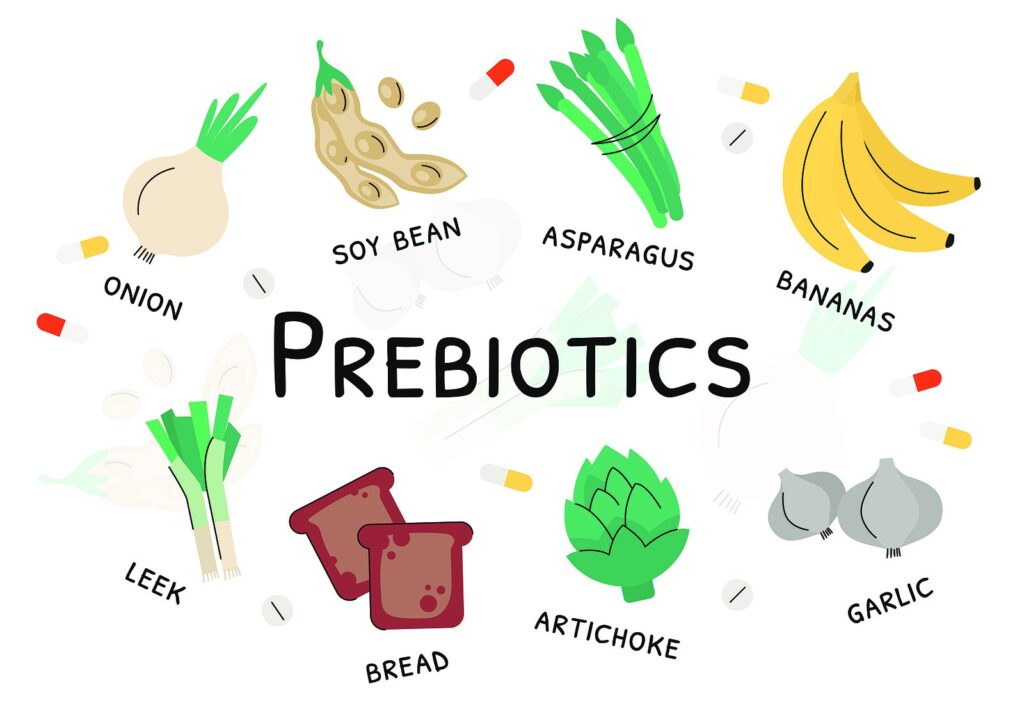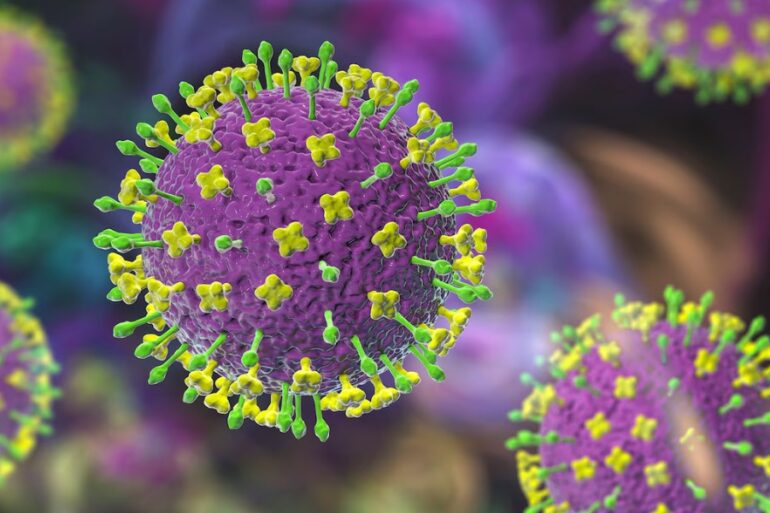Gut health, though just as important as heart or respiratory or even mental health, doesn’t get as much attention. What many people still don’t know is how a healthy gut plays a vital role in our overall wellbeing—impacting everything from digestion to mental health. Prioritizing gut health then is essential for a healthier and happier life.
The POST brings together some fascinating facts about our gastrointestinal tract that could help us take better care of such an important part of our body so we can finally say we’ve gut health—pun intended.
1. We are more bacteria than cells
The late American astronomer and planetary scientist Carl Sagan famously said that we are “made of star-stuff.” Whether you agree with his (seemingly) romantic notion or not, if medical science were to be believed, we are actually more bacteria than we are cells—or stardust for that matter.
At the media launch of NutraHealthyGut’s supplements on July 9, resource speaker Dr. Patricia Anne C. Prodigalidad said that we have “trillions of bacteria in our body, that we are actually more bacteria than we are cells.”
Dr. Prodigalidad is a clinical associate professor at the Department of Medicine, Division of Gastroenterology, UP-Philippine General Hospital. She is also the section head of Advanced Therapeutic Endoscopy, Institute of Digestive and Liver Diseases, St. Luke’s Medical Center- Global City.



“(That’s why) it’s important for us to pay attention to all these bacteria and make sure we have the good kind, because if you have the bad kind things can go wrong for us,” she explained.
These bacteria are part of our body’s ‘microbiome,’ the collection of all microbes, such as bacteria, fungi, viruses, and their genes, that naturally live on our bodies and inside us. Although microbes are so small, that they require a microscope to see them, they contribute in big ways to human health and wellness, as per the National Institute of Environmental and Health Sciences.
2. Most of the bacteria in our body reside in our gut
Most bacteria inside our body reside in our gastrointestinal tract, particularly the colon. They are dominated by two main groups: bacteroidetes and firmicutes.
“The microbiome in our gut can change with our diet in just as little as two days,” Dr. Prodigalidad said. “If you go back to your normal diet, eventually you’ll get your normal (gut) flora again. Ganoon siya kadali to shift the type of bacteria, good or bad, that you have in your gut.”



Having the right amount of good bacteria or microbes in our gut has several health benefits. First, it helps synthesize and secrete vitamins. It also prevents colonization of pathogens, keeping bad bacteria at bay and antagonizing these unwanted elements in our body. Dr. Prodigalidad added that good bacteria also stimulate the production of natural antibodies, reducing inflammation and boosting immunity.
3. The right amount of probiotics is required for our body to reap their health benefits
Probiotics. Most of us have already heard this word, or read about it on food packaging. We know it connotes something healthy and beneficial to our body—but what are probiotics really?
Probiotics are live organisms that when they are administered in adequate amounts, meaning you have enough of them, will confer health benefits to the host, said Dr. Prodigalidad. “Syempre, kapag kaunti, balewala,” the gastroenterology, hepatology, and internal medicine specialist with 17 years of experience says.



“The good bacteria keep the balance and enhance your having of good bacteria just by being there,” continued Dr. Prodigalidad. “They will also restore gut health just by being there. That’s why you need to make sure that you are able to maintain good bacteria in your gut.”
With so many products claiming to contain probiotics, Dr. Prodigalidad clarified that if probiotics are infused or are formulated into food products, they need to survive food processing. “A probiotic food item, whether it’s a probiotic rich food or probiotic formula milk or probiotic supplement, it’s called ‘probiotic’ not just because of the type of bacteria they have inside but also because of the amount of bacteria they have. You have to have a sufficient amount of them. To be classified as a probiotic, dapat napag-aralan na siya. Dapat may pruweba na beneficial siya sa iyo. Otherwise it’s not a probiotic.”



Dr. Prodigalidad said we can find these good bacteria in fermented food like kimchi, kefir, natto, and sauerkraut, or formulated drinks and food like granola bars, fruit juices, milk formula, and dietary supplements.
The good news is, these food and drink items are readily available, especially if you live in urban areas. However, even though it’s not a bad thing, we cannot know exactly how many good bacteria these items carry. “But in general, you should be regularly taking these in your diet,” she said.
4. Prebiotics are the food of your probiotics
Prebiotics, on the other hand, are food for your gut microbes or your probiotics. “They are living things. They live in us, they multiply, they have a lifespan, so they need to be fed,” explained Dr. Prodigalidad. Since the probiotics in our body feed on these prebiotics, they also confer health benefits.
But for these prebiotics to be beneficial to our body, they need to come from high-fiber foods or insoluble fibers. These are not broken down by human digestive enzymes and end up in the large intestine. Once fiber reaches the colon, the probiotics digest or metabolize the prebiotics and that’s how they’re able to produce “all the good stuff” that benefits the body.



Dr. Prodigalidad shares that a regular individual needs 15 to 16 grams of fiber a day, meaning, the recommended amount of prebiotics that you should be taking every day should be at least 20 to 25 grams. The best source of prebiotic fibers come from your diet, she said, including vegetables, fruits, legumes (beans), and whole grains.
Prebiotics can also be found in packaged food. Inulin, for instance, is a type of prebiotic that’s not digested or absorbed in the stomach, as per an article on Web MD. It stays in the bowel and helps certain beneficial bacteria to grow. Inulin is a starchy substance found in a wide variety of fruits, vegetables, and herbs, including wheat, onions, bananas, leeks, artichokes, and asparagus.
Oligosaccharides, meanwhile, are a type of carbohydrate known for their ability to act as a prebiotic, as per an article on Healthline. Among their many health benefits include improved digestion and gut health, a stronger immune system, and a reduced appetite. Oligosaccharides are found in certain vegetables, fruits, grains, and legumes.
5. We are happier—smarter and sharper even—when our bodies are well nourished
Not to be confused with ‘symbiosis,’ ‘synbiosis’ pertains to prebiotics and probiotics working together. “You will derive the most benefits from the good stuff if you have both of them existing in your body,” said Dr. Prodigalidad, adding that, “If you just have prebiotics, you are only working on the good bacteria you have in your body. If you only have probiotics, you put in the probiotics there but they have no way of surviving longer to give you the health benefits you want to get from them.”
She further explained that probiotics (gut microbes) metabolizing prebiotics in our colon during digestion result in short-chain fatty acids (SCFAs). “If you have a lot of SCFAs because of your prebiotics and probiotics, you are able to nourish the cells that line your gut, you are then able to reduce a number of illnesses such as cancer, particularly colon cancer, by reducing inflammation and keeping the gut lining healthy.”



SCFAs also enable our gut to absorb nutrients better, calcium in particular, and can help avoid or relieve constipation and diarrhea. They don’t just act directly on the lining of our colon, Dr. Prodigalidad added, as the metabolism between prebiotics and probiotics result in an increase in good hormones and good chemicals that also enter your bloodstream, allowing these to get to other parts of your body.
She said that SCNAs are very particular about brain signaling. “That’s why you feel so good, you’re happy, even smarter and sharper when you’re very well nourished, if you have enough good bacteria and prebiotics in your gut.”
A healthy gut doesn’t only promote digestive health. It also helps keep a healthy heart and kidneys, aids in improving mental health, strengthens our immune system, reduces the risk of inflammation, and helps in weight management.



And to help us achieve a healthy gut, NutraHealthyGut offers a range of supplements designed to support and enhance gut health across all ages: NutraHealthyGut Everyday, NutraHealthyGut Advance, and NutraHealthyGut Kids.
These products combine the power of probiotics and prebiotics to restore intestinal ecology and balance, reducing constipation, infectious diarrhea, and antibiotic-related diarrhea. They also improve digestion, alleviate bloating, and help reduce symptoms of lactose intolerance. Additionally, NutraHealthyGut supplements aid in preventing UTIs, managing symptoms of IBD & IBS, and addressing pediatric atopic dermatitis and eczema in children.
NutraHealthyGut’s supplements are available in leading drugstores nationwide such as Mercury Drug, Watsons, Medexpress, Southstar, Mediscount, and in some major hospitals. They can also be purchased online at https://www.lazada.com.ph/tag/nutrahealthygut/. For more information, follow @nutrahealthygut on Instagram and Facebook.








